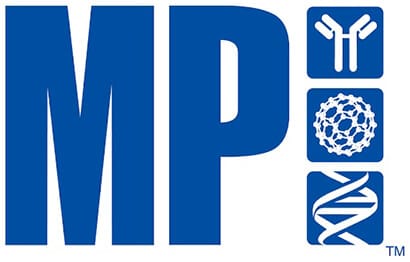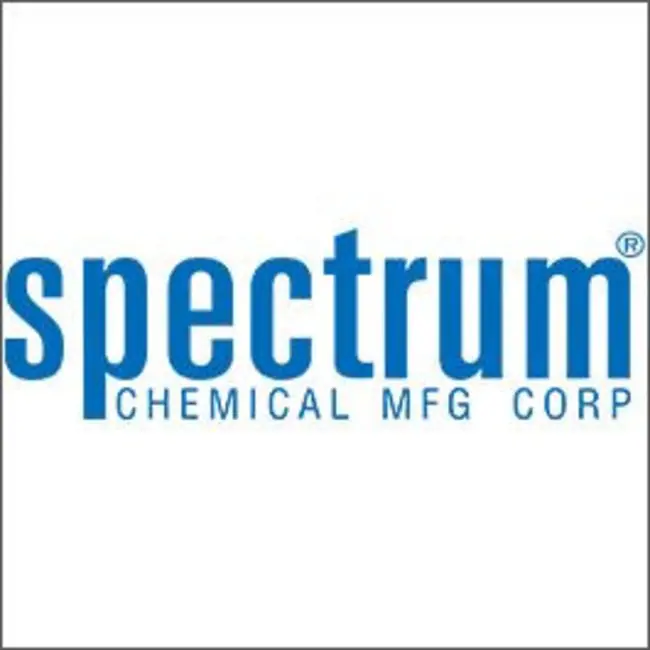Showing 248501–248550 of 268263 results
-
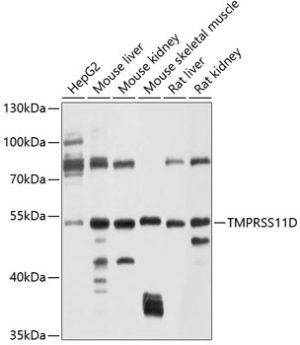
TMPRSS11D Rabbit pAb
$239.89 Add to cart View Product DetailsPolyclonal Antibodies
-

TMPRSS11D Rabbit pAb
$86.94 Add to cart View Product DetailsPolyclonal Antibodies
-

TMPRSS2 Rabbit mAb
$296.24 Add to cart View Product DetailsMonoclonal Antibodies
-

TMPRSS2 Rabbit mAb
$119.14 Add to cart View Product DetailsMonoclonal Antibodies
-

TMPRSS2 Rabbit pAb
$86.94 Add to cart View Product DetailsPolyclonal Antibodies
-

TMPRSS2 Rabbit pAb
$239.89 Add to cart View Product DetailsPolyclonal Antibodies
-

TMPRSS6 Rabbit pAb
$239.89 Add to cart View Product DetailsPolyclonal Antibodies
-

TMPRSS6 Rabbit pAb
$86.94 Add to cart View Product DetailsPolyclonal Antibodies
-
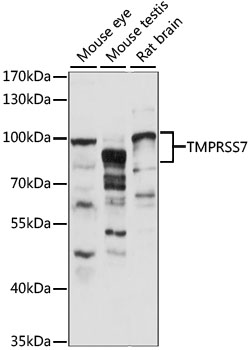
TMPRSS7 Rabbit pAb
$86.94 Add to cart View Product DetailsPolyclonal Antibodies
-

TMPRSS7 Rabbit pAb
$239.89 Add to cart View Product DetailsPolyclonal Antibodies
-
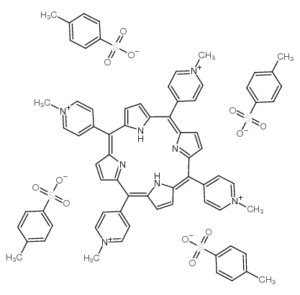
TMPyP4
$56.06 Add to cart View Product DetailsMolecular Formula : C72H66N8O12S4
-

TMPyP4
$61.24 Add to cart View Product DetailsMolecular Formula : C72H66N8O12S4
-

TMPyP4
$72.45 Add to cart View Product DetailsMolecular Formula : C72H66N8O12S4
-
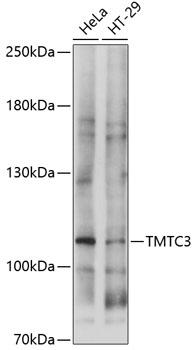
TMTC3 Rabbit pAb
$239.89 Add to cart View Product DetailsPolyclonal Antibodies
-

TMTC3 Rabbit pAb
$86.94 Add to cart View Product DetailsPolyclonal Antibodies
-
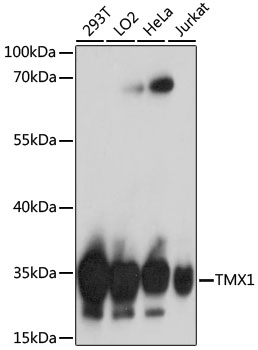
TMX1 Rabbit pAb
$239.89 Add to cart View Product DetailsPolyclonal Antibodies
-

TMX1 Rabbit pAb
$86.94 Add to cart View Product DetailsPolyclonal Antibodies
-

TMX1 Rabbit pAb
$86.94 Add to cart View Product DetailsPolyclonal Antibodies
-

TMX1 Rabbit pAb
$239.89 Add to cart View Product DetailsPolyclonal Antibodies
-

TMX2 Rabbit pAb
$239.89 Add to cart View Product DetailsPolyclonal Antibodies
-

TMX2 Rabbit pAb
$86.94 Add to cart View Product DetailsPolyclonal Antibodies
-

TN Buffer Solution
$42.94 Add to cart View Product DetailsTN Buffer Solution
-

TN Buffer Solution
$76.94 Add to cart View Product DetailsTN Buffer Solution
-
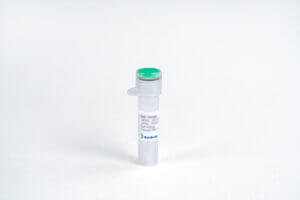
TNF R I, Human
$68.14 Add to cart View Product DetailsTNF Receptor Type I, is also known as TNF R-p55/p60 and TNFRSF1A. It is a type I transmembrane protein member of the TNF receptor superfamily. It is expressed in most cell types. Binding of either TNF-α or TNF-β to TNF-R1 initiates a signal transduction pathway that results in the activation of the transcription factor NF-κB, whose target genes are involved in the regulation of inflammatory responses, and, in certain cells, induce apoptosis. TNF-R1 is essential for proper development of lymph node germinal centers and Peyer’s patches and for combating intracellular pathogens such as Listeria. It is stored in the Golgi and translocates to the cell surface following proinflammatory stimuli.
-

TNF R I, Human
$155.25 Add to cart View Product DetailsTNF Receptor Type I, is also known as TNF R-p55/p60 and TNFRSF1A. It is a type I transmembrane protein member of the TNF receptor superfamily. It is expressed in most cell types. Binding of either TNF-α or TNF-β to TNF-R1 initiates a signal transduction pathway that results in the activation of the transcription factor NF-κB, whose target genes are involved in the regulation of inflammatory responses, and, in certain cells, induce apoptosis. TNF-R1 is essential for proper development of lymph node germinal centers and Peyer’s patches and for combating intracellular pathogens such as Listeria. It is stored in the Golgi and translocates to the cell surface following proinflammatory stimuli.
-

TNF RII/TNFRSF1B/CD120b Rabbit pAb
$86.94 Add to cart View Product DetailsPolyclonal Antibodies
-

TNF RII/TNFRSF1B/CD120b Rabbit pAb
$239.89 Add to cart View Product DetailsPolyclonal Antibodies
-
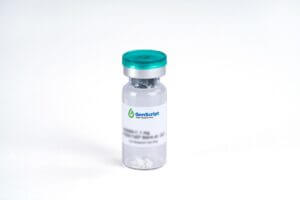
TNF-α (80-235aa), Mouse
$1,323.94 Add to cart View Product DetailsTumor Necrosis Factor-Alpha (TNF-alpha) plays a major role in growth regulation, differentiation, inflammation, viral replication, tumorigenesis, and autoimmune disease. Besides inducing hemorrhagic necrosis of tumors, TNF has been found to be involved in tumorigenesis, tumor metastasis, viral replication, septic shock, fever, inflammation, and autoimmune diseasesuch as Crohn’s disease, rheumatoid arthritis and graft-versus-host disease. TNF alpha-1a is a potent lymphoid factor that exerts cytotoxic effects on a wide range of tumor cells and certain other target cells.
-

TNF-α (80-235aa), Mouse
$43.13 Add to cart View Product DetailsTumor Necrosis Factor-Alpha (TNF-alpha) plays a major role in growth regulation, differentiation, inflammation, viral replication, tumorigenesis, and autoimmune disease. Besides inducing hemorrhagic necrosis of tumors, TNF has been found to be involved in tumorigenesis, tumor metastasis, viral replication, septic shock, fever, inflammation, and autoimmune diseasesuch as Crohn’s disease, rheumatoid arthritis and graft-versus-host disease. TNF alpha-1a is a potent lymphoid factor that exerts cytotoxic effects on a wide range of tumor cells and certain other target cells.
-

TNF-α (80-235aa), Mouse
$99.19 Add to cart View Product DetailsTumor Necrosis Factor-Alpha (TNF-alpha) plays a major role in growth regulation, differentiation, inflammation, viral replication, tumorigenesis, and autoimmune disease. Besides inducing hemorrhagic necrosis of tumors, TNF has been found to be involved in tumorigenesis, tumor metastasis, viral replication, septic shock, fever, inflammation, and autoimmune diseasesuch as Crohn’s disease, rheumatoid arthritis and graft-versus-host disease. TNF alpha-1a is a potent lymphoid factor that exerts cytotoxic effects on a wide range of tumor cells and certain other target cells.
-
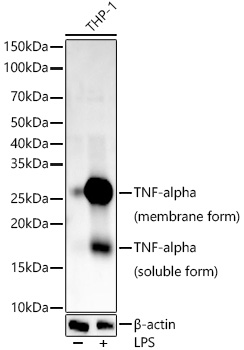
TNF-α Rabbit mAb
$103.04 Add to cart View Product DetailsMonoclonal Antibodies
-

TNF-α Rabbit mAb
$103.04 Add to cart View Product DetailsMonoclonal Antibodies
-

TNF-α Rabbit mAb
$264.04 Add to cart View Product DetailsMonoclonal Antibodies
-

TNF-α Rabbit mAb
$264.04 Add to cart View Product DetailsMonoclonal Antibodies
-

TNF-α Rabbit mAb
$103.04 Add to cart View Product DetailsMonoclonal Antibodies
-

TNF-α Rabbit mAb
$264.04 Add to cart View Product DetailsMonoclonal Antibodies
-

TNF-α Rabbit pAb
$86.94 Add to cart View Product DetailsPolyclonal Antibodies
-

TNF-α Rabbit pAb
$239.89 Add to cart View Product DetailsPolyclonal Antibodies
-
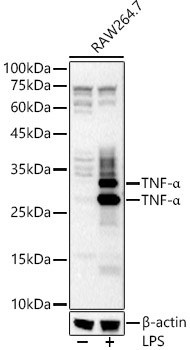
TNF-α Rabbit pAb
$239.89 Add to cart View Product DetailsPolyclonal Antibodies
-

TNF-α Rabbit pAb
$86.94 Add to cart View Product DetailsPolyclonal Antibodies
-

TNF-α, Bovine
$1,323.94 Add to cart View Product DetailsTumor Necrosis Factor-Alpha (TNF-α) plays a major role in regulating growth, differentiation, inflammation, viral replication, tumorigenesis, and autoimmune diseases. TNF alpha-1a is a potent lymphoid factor that exerts cytotoxic effects on a wide range of tumor cells. In addition to inducing hemorrhagic necrosis of tumors, studies indicate TNF is involved in tumor igenesis, tumor metastasis, viral replication, septic shock, fever, inflammation, Crohn’s disease, rheumatoid arthritis and graft-versus-host disease.
-

TNF-α, Bovine
$63.83 Add to cart View Product DetailsTumor Necrosis Factor-Alpha (TNF-α) plays a major role in regulating growth, differentiation, inflammation, viral replication, tumorigenesis, and autoimmune diseases. TNF alpha-1a is a potent lymphoid factor that exerts cytotoxic effects on a wide range of tumor cells. In addition to inducing hemorrhagic necrosis of tumors, studies indicate TNF is involved in tumor igenesis, tumor metastasis, viral replication, septic shock, fever, inflammation, Crohn’s disease, rheumatoid arthritis and graft-versus-host disease.
-

TNF-α, Bovine
$155.25 Add to cart View Product DetailsTumor Necrosis Factor-Alpha (TNF-α) plays a major role in regulating growth, differentiation, inflammation, viral replication, tumorigenesis, and autoimmune diseases. TNF alpha-1a is a potent lymphoid factor that exerts cytotoxic effects on a wide range of tumor cells. In addition to inducing hemorrhagic necrosis of tumors, studies indicate TNF is involved in tumor igenesis, tumor metastasis, viral replication, septic shock, fever, inflammation, Crohn’s disease, rheumatoid arthritis and graft-versus-host disease.
-

TNF-α, His, Human
$612.38 Add to cart View Product DetailsTumor Necrosis Factor-Alpha (TNF-alpha) plays a major role in growth regulation, differentiation, inflammation, viral replication, tumorigenesis, and autoimmune diseases. Besides inducing hemorrhagic necrosis of tumors, TNF has been found to be involved in tumorigenesis, tumor metastasis, viral replication, septic shock, fever, inflammation, and autoimmune diseases including Crohn’s disease, and rheumatoid arthritis as well as graft-versus-host disease. TNF alpha-1a is a potent lymphoid factor that exerts cytotoxic effects on a wide range of tumor cells and certain other target cells.
-

TNF-α, His, Human
$51.75 Add to cart View Product DetailsTumor Necrosis Factor-Alpha (TNF-alpha) plays a major role in growth regulation, differentiation, inflammation, viral replication, tumorigenesis, and autoimmune diseases. Besides inducing hemorrhagic necrosis of tumors, TNF has been found to be involved in tumorigenesis, tumor metastasis, viral replication, septic shock, fever, inflammation, and autoimmune diseases including Crohn’s disease, and rheumatoid arthritis as well as graft-versus-host disease. TNF alpha-1a is a potent lymphoid factor that exerts cytotoxic effects on a wide range of tumor cells and certain other target cells.
-

TNF-α, His, Human
$94.88 Add to cart View Product DetailsTumor Necrosis Factor-Alpha (TNF-alpha) plays a major role in growth regulation, differentiation, inflammation, viral replication, tumorigenesis, and autoimmune diseases. Besides inducing hemorrhagic necrosis of tumors, TNF has been found to be involved in tumorigenesis, tumor metastasis, viral replication, septic shock, fever, inflammation, and autoimmune diseases including Crohn’s disease, and rheumatoid arthritis as well as graft-versus-host disease. TNF alpha-1a is a potent lymphoid factor that exerts cytotoxic effects on a wide range of tumor cells and certain other target cells.
-

TNF-α, Human
$586.50 Add to cart View Product DetailsTumor Necrosis Factor-alpha (TNF-a) is a homotrimer with a subunit molecular mass of 17.3 kDa. Tumor Necrosis Factor-alpha(TNF-a) plays a major role in growth regulation, differentiation, inflammation, viral replication, tumorigenesis, and autoimmune diseases; and in viral, bacterial, fungal, and parasitic infections. Besides inducing hemorrhagic necrosis of tumors, TNF has been found to be involved in tumorigenesis, tumor metastasis, viral replication, septic shock, fever, inflammation, and autoimmune diseases including Crohn’s disease, and rheumatoid arthritis as well as graft-versus-host disease.
-

TNF-α, Human
$50.03 Add to cart View Product DetailsTumor Necrosis Factor-alpha (TNF-a) is a homotrimer with a subunit molecular mass of 17.3 kDa. Tumor Necrosis Factor-alpha(TNF-a) plays a major role in growth regulation, differentiation, inflammation, viral replication, tumorigenesis, and autoimmune diseases; and in viral, bacterial, fungal, and parasitic infections. Besides inducing hemorrhagic necrosis of tumors, TNF has been found to be involved in tumorigenesis, tumor metastasis, viral replication, septic shock, fever, inflammation, and autoimmune diseases including Crohn’s disease, and rheumatoid arthritis as well as graft-versus-host disease.
-

TNF-α, Human
$90.56 Add to cart View Product DetailsTumor Necrosis Factor-alpha (TNF-a) is a homotrimer with a subunit molecular mass of 17.3 kDa. Tumor Necrosis Factor-alpha(TNF-a) plays a major role in growth regulation, differentiation, inflammation, viral replication, tumorigenesis, and autoimmune diseases; and in viral, bacterial, fungal, and parasitic infections. Besides inducing hemorrhagic necrosis of tumors, TNF has been found to be involved in tumorigenesis, tumor metastasis, viral replication, septic shock, fever, inflammation, and autoimmune diseases including Crohn’s disease, and rheumatoid arthritis as well as graft-versus-host disease.
-

TNF-α, Human (P. pastoris-expressed)
$612.38 Add to cart View Product DetailsTumor Necrosis Factor-Alpha (TNF-alpha) plays a major role in growth regulation, differentiation, inflammation, viral replication, tumorigenesis, and autoimmune diseases. Besides inducing hemorrhagic necrosis of tumors, TNF has been found to be involved in tumorigenesis, tumor metastasis, viral replication, septic shock, fever, inflammation, and autoimmune diseases including Crohn’s disease, and rheumatoid arthritis as well as graft-versus-host disease. TNF alpha-1a is a potent lymphoid factor that exerts cytotoxic effects on a wide range of tumor cells and certain other target cells.



